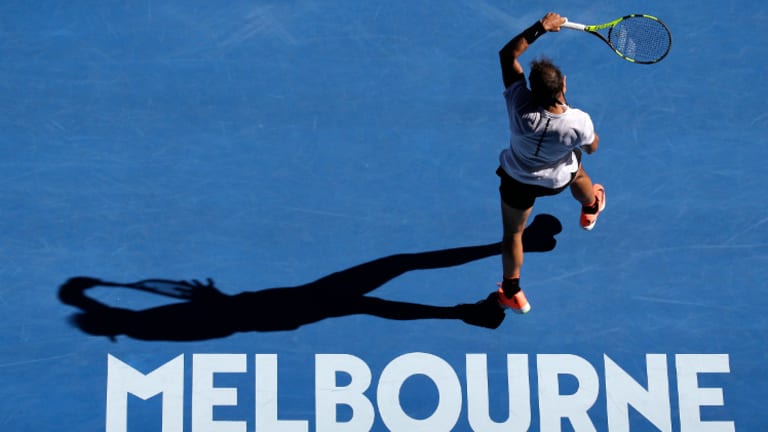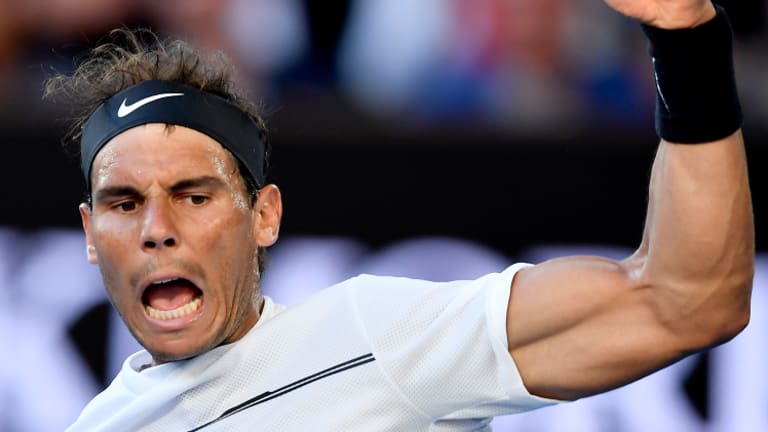For Rafael Nadal, it must have felt like Groundhog Day and déjà-vu-all-over-again rolled into one.
Here he was, on a Grand Slam show court, facing yet another flame-throwing opponent with nothing to lose. Twelve months ago at the Australian Open, Rafa had watched helplessly as Fernando Verdasco caught fire and beat him in five sets. Then, last fall, at the U.S. Open, he had watched as 22-year-old Lucas Pouille caught him at the finish line in a fifth-set tiebreaker. Now Nadal was back in Rod Laver Arena, deep into a dogfight against another young hot shot with a cannon for a right arm, 19-year-old Alexander Zverev.
The German is the type of a player—tall, hard-hitting, with a two-handed backhand—who gives Nadal fits. For the past two hours, he had been belting serves, forehands and backhands past Rafa, and he had just won a third-set tiebreaker to go up two sets to one. At the end of that tiebreaker, Zverev, despite his inexperience, had been the bolder and more clutch player. Nadal, for all of his legendary heart and fight, had been the cautious and careful—and, at this point, losing—player.
Still, Rafa had been brilliant for long stretches of this match. He had hit and run with the panache of his glory years, and the forehand that had grown tentative in 2016 had become a reliable weapon again. While he couldn’t match the power of Zverev, who would finish with 19 aces and 58 winners, Nadal was still the savvier tactician. He had spun his serve away from Zverev’s two-handed backhand. He had flattened out his forehand and used the quicker pace of this year’s Aussie Open courts to his advantage. And he had turned the momentum in his favor in the second set by mixing spins and trajectories.
Yet Nadal had been unable, as he had been unable in so many other close contests over the last two years, to come up with the right shot when he needed it most, and win the point he had to have. The 30-year-old was unable to do what his 20-year-old self had been so famous for doing: Go in for the kill. In Nadal’s first 18 five-set matches at the Grand Slams, he had come away the winner in 14 of them. But he had lost the last three.

